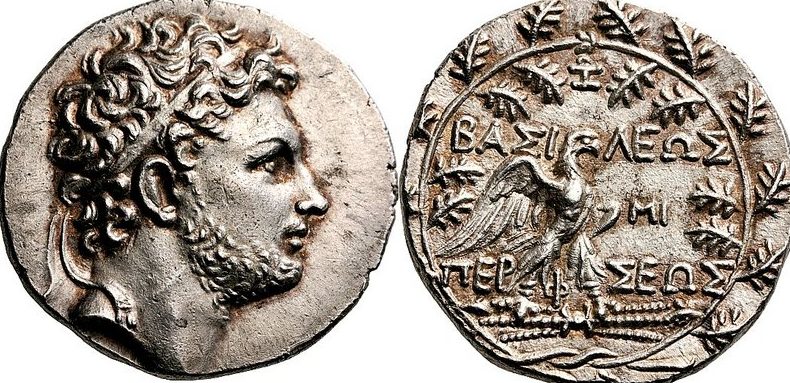The Antigonid dynasty was one of the key Hellenistic dynasties that rose to prominence following the death of Alexander the Great. Established by Antigonus I Monophthalmus, a former general of Alexander, this dynasty played a significant role in shaping the political and cultural dynamics of Macedonia and Greece from 306 BCE to 168 BCE. During their reign, the Antigonids sought to maintain and expand their control over territories once part of Alexander’s vast empire, while also navigating the complex landscape of Hellenistic rivalries. The dynasty’s rule came to an end when they were defeated by the Romans in the Battle of Pydna in 168 BCE, marking the absorption of Macedonia into the Roman Republic. The Antigonids are remembered for their military campaigns, political strategies, and contributions to Hellenistic culture and governance.
Founding and Early Expansion
The Antigonid dynasty emerged in the aftermath of the division of Alexander the Great’s empire among his generals, known as the Diadochi. Antigonus I Monophthalmus, the founder, was a powerful figure who initially aimed to reunite the fragmented empire under his control. He was involved in the Wars of the Diadochi, fighting rival Hellenistic rulers such as the Seleucids, Ptolemies, and Lysimachus. His son, Demetrius I Poliorcetes, continued the family’s military legacy, becoming known for his expertise in naval warfare and leading several successful campaigns. Among his notable achievements was the Siege of Salamis in Cyprus, where he decisively defeated Ptolemaic forces and secured the island for the Antigonids.
Despite their initial successes, the Antigonids faced significant challenges from other Hellenistic powers, particularly in their attempts to dominate the former territories of Alexander’s empire. Rivalries with the Seleucids and Ptolemies, combined with shifting alliances and constant warfare, meant that the dynasty’s ambitions were frequently checked. Nevertheless, the Antigonids managed to consolidate their control over Macedonia and parts of Greece, setting the stage for their later dominance in the region.

2. Military and Political Dominance
Antigonus II Gonatas was a pivotal figure in restoring stability to Macedonia after the tumultuous period that followed the Wars of the Diadochi. His reign (277–239 BCE) marked the consolidation of the Antigonid dynasty’s control over Macedonia and Greece. One of his most significant military victories was the defeat of the invading Gauls in 277 BCE. This victory helped secure the northern borders of Macedonia and eliminated a substantial threat to the region(World History Encyclopedia)(History Hit). Antigonus II’s triumph over the Gauls also bolstered Macedonian influence in Greece, and through a combination of diplomacy and military power, he maintained control over key Greek city-states, securing the dynasty’s dominance in the region(World History Encyclopedia).Following Antigonus II, Antigonus III Doson continued to assert the Antigonid dynasty’s power, particularly through his victory over Sparta at the Battle of Sellasia in 222 BCE. His defeat of the renowned Spartan king, Cleomenes III, was a decisive moment that marked the resurgence of Macedonian dominance in the Peloponnesus(Alexander The Great)(History Hit). This battle effectively ended Sparta’s long-standing influence and affirmed Macedonia’s supremacy over the Greek mainland, reinstating the political and military might that had waned in the years following Alexander the Great’s death(Alexander The Great).

3. Struggles Against Rome
As the Antigonid dynasty solidified its hold over Macedonia and Greece, it increasingly faced the expanding power of the Roman Republic. The reign of Philip V (221–179 BCE) epitomized the dynasty’s attempts to extend its influence while grappling with Rome’s growing presence. Initially, Philip V achieved success, expanding Macedonian control over Greece and even intervening in conflicts far beyond Macedonian borders. However, his ambitious expansion soon led to conflicts with Rome in what became known as the Macedonian Wars(World History Encyclopedia). These wars gradually weakened Macedonia, as Rome’s military and political influence grew across the Mediterranean.After Philip’s death, his son Perseus (179–168 BCE) attempted to resist Roman domination, but his efforts culminated in the catastrophic defeat at the Battle of Pydna in 168 BCE. This decisive battle, fought in northern Greece, marked the collapse of the Antigonid dynasty and the end of Macedonian independence(Alexander The Great). Following their victory, the Romans dismantled the Macedonian kingdom, turning it into a Roman province and fully absorbing the region into the growing Roman Empire(World History Encyclopedia)(History Hit).
4. Cultural and Military Contributions
The Antigonid dynasty not only played a critical role in military and political spheres but also made significant contributions to Hellenistic culture. Their reign saw the flourishing of cities like Pella, which became a prominent cultural and administrative center. The Antigonids were patrons of the arts and public infrastructure, supporting the construction of temples, theaters, and other civic buildings that reflected the architectural and artistic grandeur of the Hellenistic period(World History Encyclopedia). Under their rule, Macedonian cities thrived as hubs of intellectual and artistic activity, furthering the legacy of Alexander the Great by promoting Greek culture and Hellenistic ideas throughout the region.
On the military front, the Antigonid dynasty preserved and adapted the strategies pioneered by Alexander the Great. One of their key contributions was the continued use of the phalanx formation, a battle tactic that allowed Macedonian forces to maintain dominance over rival armies. They also excelled in siege warfare, employing advanced techniques and technologies to conquer fortified cities(Alexander The Great). The Antigonids were able to build on Alexander’s military innovations, ensuring that Macedonia remained a formidable military power for much of their reign. Their military prowess influenced subsequent historical periods, particularly the Roman armies, who adopted elements of their tactics and strategies(World History Encyclopedia)(History Hit).
Conclusion
The Antigonid dynasty was instrumental in maintaining Macedonian influence during the Hellenistic period, particularly in Greece and the surrounding regions. Their ability to restore political stability and their military successes, such as victories over the Gauls and Sparta, solidified their dominance in the region. Culturally, they promoted Hellenistic ideals and fostered the growth of major cities like Pella, leaving a lasting imprint on the cultural landscape.
While the dynasty eventually fell to Rome at the Battle of Pydna in 168 BCE, their contributions to military strategy and cultural development continued to resonate long after their downfall. The Antigonid dynasty, though ultimately defeated, played a key role in shaping the trajectory of the ancient Mediterranean world. Their military innovations and cultural patronage left a legacy that influenced subsequent generations and even the Roman conquerors who succeeded them(Alexander The Great)(World History Encyclopedia)(History Hit).
References
- World History Encyclopedia: Provides an extensive overview of the Antigonid dynasty’s history, including key battles, rulers, and their impact on Macedonia and the Hellenistic world. Available at World History Encyclopedia.
- History Hit: Offers detailed insights into the military campaigns and political strategies of the Antigonid dynasty, especially focusing on their conflicts with Rome and other Hellenistic kingdoms. Available at History Hit.
- Alexander the Great Resources: A comprehensive source on the successors of Alexander the Great, including the Antigonid dynasty’s role in maintaining and expanding his legacy in Macedonia and Greece. Available at Alexander-the-Great.org.
These resources provide valuable background and detailed information on the Antigonid dynasty’s military, cultural, and political contributions.
Frequently Asked Questions (FAQ)
1. Who founded the Antigonid dynasty?
- The Antigonid dynasty was founded by Antigonus I Monophthalmus, a former general of Alexander the Great, after the division of Alexander’s empire. He sought to reunite the fragmented territories under his control but faced stiff resistance from other Hellenistic rulers(World History Encyclopedia)(History Hit).
2. What were the major accomplishments of Antigonus II Gonatas?
- Antigonus II Gonatas is best known for restoring stability to Macedonia after the chaotic period following Alexander’s death. His most notable achievement was his victory over the Gauls in 277 BCE, which secured Macedonia’s borders and solidified its control over Greece(World History Encyclopedia).
3. What was the significance of the Battle of Sellasia?
- The Battle of Sellasia, fought in 222 BCE, was a decisive victory for Antigonus III Doson over Sparta. This battle ended Sparta’s influence in Greece and marked a resurgence of Macedonian dominance in the region(Alexander The Great)(History Hit).
4. How did the Antigonid dynasty fall?
- The Antigonid dynasty fell after Perseus, the last ruler, was defeated by the Roman Republic at the Battle of Pydna in 168 BCE. This defeat ended Macedonian independence, and the region became a Roman province(World History Encyclopedia)(Alexander The Great).
5. What cultural contributions did the Antigonid dynasty make?
- The Antigonids were patrons of the arts and culture, supporting public infrastructure projects in cities like Pella. Their promotion of Hellenistic culture through architectural projects and civic structures helped maintain the cultural vibrancy of their era(World History Encyclopedia)(History Hit).
6. What military tactics did the Antigonid dynasty employ?
- The Antigonid dynasty continued using the phalanx formation, a highly effective military tactic developed during Alexander the Great’s reign. They also advanced siege warfare techniques, ensuring Macedon’s military strength against both internal and external threats(Alexander The Great).
7. How did the Antigonid dynasty influence future military strategies?
- The Antigonid dynasty’s military innovations, particularly their adaptation of the phalanx and siege warfare, had a lasting influence on subsequent military strategies. The Roman legions, in particular, adopted many of these tactics after defeating the Antigonids(World History Encyclopedia)(Alexander The Great).




